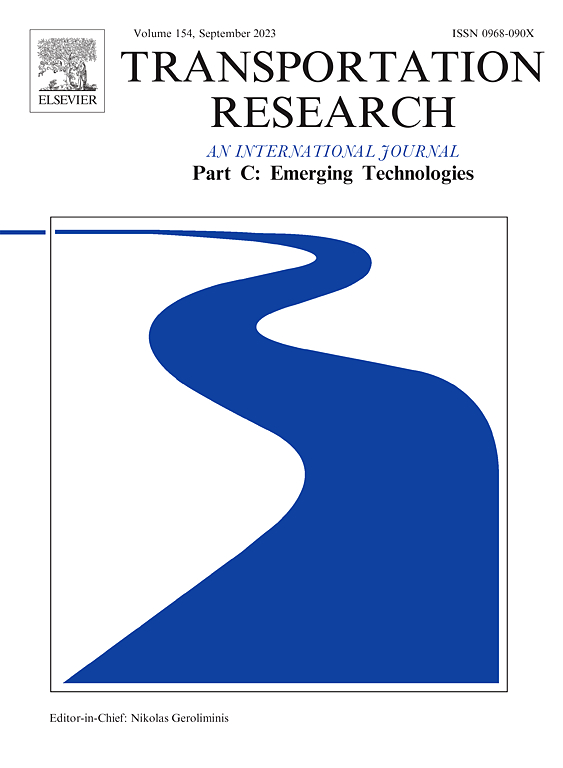Robust trajectory optimization under arbitrary uncertainty using ensemble weather forecasting and statistical aircraft performance model
IF 7.6
1区 工程技术
Q1 TRANSPORTATION SCIENCE & TECHNOLOGY
Transportation Research Part C-Emerging Technologies
Pub Date : 2025-02-01
DOI:10.1016/j.trc.2025.104999
引用次数: 0
Abstract
Aircraft trajectory optimization can improve delay absorption and fuel efficiency; however, existing methods suffer from problems such as insufficient adaptability to uncertainty. This paper introduces a robust trajectory optimization algorithm for optimizing flight profiles in the presence of arbitrary uncertainties in weather forecasting and aircraft performance models. Ensemble forecast data are used to provide the uncertainty in the weather forecasts, and a statistical aircraft performance model based on flight data is utilized to provide the uncertainty in the aircraft performance model. Arbitrary polynomial chaos expansion is applied to efficiently quantify arbitrary uncertainties in aircraft dynamics, and incorporated into the trajectory optimization algorithm. The -hill climbing algorithm, a stochastic local search algorithm developed recently, is employed to determine the optimal flight profiles. By conducting numerical simulations on a popular domestic flight route in Japan during time-based metering operations, this study assesses potential fuel savings by the optimal trajectories with speed control and step descent along the planned route, as opposed to radar vectoring. Actual flight data from past flights are utilized for evaluation, and average fuel savings of approximately 2% are expected. Based on the analysis conducted in this study, the effectiveness of the robust trajectory optimization algorithm and fuel savings for time-based metering operations are evaluated and demonstrated.
求助全文
约1分钟内获得全文
求助全文
来源期刊
CiteScore
15.80
自引率
12.00%
发文量
332
审稿时长
64 days
期刊介绍:
Transportation Research: Part C (TR_C) is dedicated to showcasing high-quality, scholarly research that delves into the development, applications, and implications of transportation systems and emerging technologies. Our focus lies not solely on individual technologies, but rather on their broader implications for the planning, design, operation, control, maintenance, and rehabilitation of transportation systems, services, and components. In essence, the intellectual core of the journal revolves around the transportation aspect rather than the technology itself. We actively encourage the integration of quantitative methods from diverse fields such as operations research, control systems, complex networks, computer science, and artificial intelligence. Join us in exploring the intersection of transportation systems and emerging technologies to drive innovation and progress in the field.

 求助内容:
求助内容: 应助结果提醒方式:
应助结果提醒方式:


